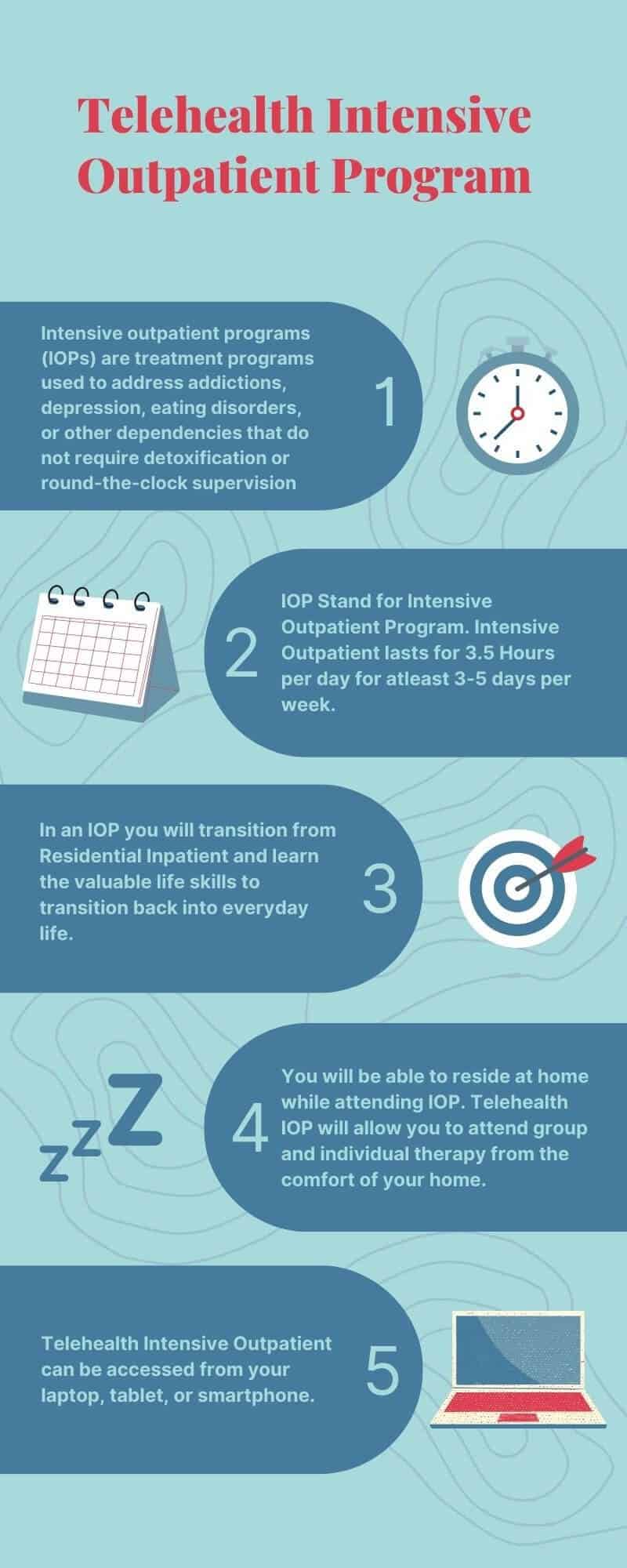The Advantages of Intensive Outpatient Program (IOP) for Long-Term Health.
The Advantages of Intensive Outpatient Program (IOP) for Long-Term Health.
Blog Article
The Impact of Holistic Therapies on Mind-Body Recovery in an Intensive Outpatient Program
In the realm of intensive outpatient programs, the unification of all natural therapies has actually stimulated significant interest and discussion among professionals in the area of psychological health and health. The expedition of alternate methods, such as yoga exercise, meditation, acupuncture, and mindfulness techniques, questions concerning their efficiency in promoting mind-body recovery for people going through treatment. As the need for extensive and integrative care expands, comprehending the effect of these holistic treatments within the structured framework of an extensive outpatient program ends up being increasingly essential. The potential harmony between standard restorative modalities and all natural methods in promoting holistic well-being remains a subject ripe for expedition and analysis.
Integrating Holistic Therapies in IOP
Integrating all natural therapies right into Intensive Outpatient Programs (IOP) can boost the general well-being and treatment outcomes of individuals seeking psychological health and wellness assistance. All natural treatments concentrate on treating the entire person, resolving not only the signs and symptoms however additionally the underlying causes of mental wellness concerns. By integrating techniques such as yoga exercise, reflection, art therapy, and acupuncture into IOP settings, individuals can experience a much more extensive technique to their therapy.

Benefits of Yoga and Meditation
By infusing IOP setups with all natural therapies like yoga and reflection, individuals can access a range of benefits that add to their mental and emotional health - Intensive Outpatient Program (IOP). Furthermore, yoga enhances self-awareness and cultivates a feeling of inner peace, which can be specifically valuable for people undergoing extensive outpatient treatment.
Meditation, on the other hand, concentrates on training the mind to accomplish a state of quality and psychological peace. By including meditation into their routine, individuals in an IOP can find out to take care of racing thoughts, enhance concentration, and cultivate an extra positive expectation on life. Reflection techniques have actually been shown to reduce symptoms of PTSD, improve emotional resilience, and advertise better rest patterns, every one of which are crucial parts of the recovery process in extensive outpatient programs. Incorporating yoga and meditation into IOP setups can dramatically improve the psychological and emotional health of individuals looking for alternative healing.
Acupuncture for Mind-Body Recovery
Acupuncture, a traditional Chinese medicine technique involving the insertion of slim needles right into specific points on the body, uses an one-of-a-kind approach to mind-body healing by targeting useful source energy flow and promoting alternative health. This old strategy is based upon the principle of Qi, the body's essential power, moving along meridians or paths. By stimulating certain acupoints, acupuncturists intend to recover the balance of Qi, which is believed to be vital for general health and well-being.

In addition, acupuncture is increasingly being integrated into Western medication techniques to enhance traditional therapies for different mental health disorders, using an alternative approach that thinks about the interconnectedness of the mind and body in promoting healing and health.
Mindfulness Techniques in Treatment
Increasing on the realm of all natural therapies, mindfulness methods play a critical duty in treatment by promoting a much deeper connection in between the mind and body for overall wellness. In the context of an extensive outpatient program, integrating mindfulness strategies can help people develop self-awareness, control feelings, and reduce anxiety levels.

By encouraging people to discover this observe their ideas without add-on or judgment, mindfulness cultivates a feeling of acceptance and compassion towards oneself. Ultimately, integrating mindfulness strategies right into therapy plans can empower people to proactively take part in their healing journey and advertise all natural wellness.
Examining Alternative Interventions' Efficiency

Qualitative evaluations, on the other hand, involve gathering subjective feedback from participants concerning their experiences with holistic interventions. This qualitative information can provide useful insights into the regarded benefits of these treatments on people' overall wellness, high quality of life, and coping mechanisms. By integrating measurable information with qualitative responses, researchers can acquire a much more all natural understanding of the efficacy look at here of these interventions in promoting mind-body recovery within an intensive outpatient program. Such examinations are necessary for educating evidence-based methods and optimizing holistic therapy techniques for people looking for comprehensive health.
Final Thought
To conclude, the integration of holistic treatments such as yoga exercise, reflection, acupuncture, and mindfulness methods in an intensive outpatient program can have a significant effect on mind-body recovery. These therapies offer a more thorough technique to therapy by attending to the physical, emotional, and spiritual aspects of a person's health. Reviewing the effectiveness of these alternative interventions is crucial in recognizing their possible advantages in improving the overall recovery process for individuals in an outpatient setup.
Report this page